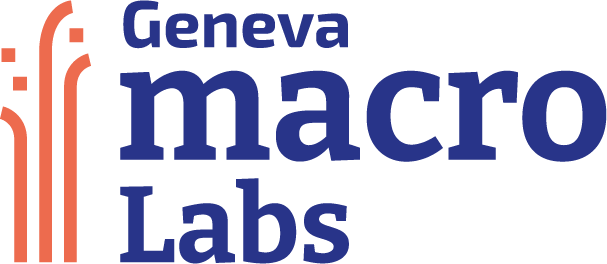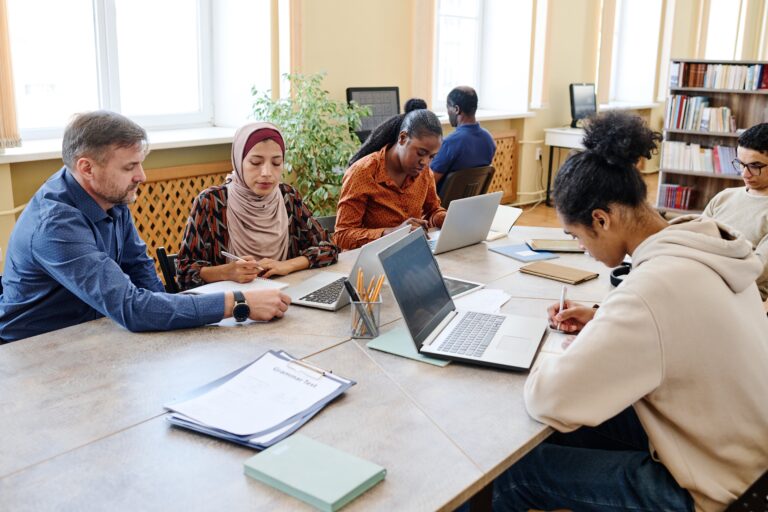In early March, I was honored to participate in an International Women’s Day Panel hosted by Geneva Macro Labs. The theme was “Break the Bias,” and I was joined by Dr Ayomide Owoyemi, Tala Dowlatshahi, and Dr Marianne Schörling. Our task was to consider how data, algorithms, and algorithmic bias impact health, and how adopting an equity-centered approach could help improve health outcomes.
The conversation was informative and dynamic as we engaged with an online audience about the state of this nascent but burgeoning industry. While we acknowledged at the beginning of the panel discussion that bias is encoded into our society and measures are necessary to weed out bias from our data and models, one of my main points centered on why algorithms are gatekeepers to economic opportunities and health. The Greenlining Institute’s work has expanded throughout its history to focus on modern forms of redlining and discrimination in technology. We recently released a report examining the digital divide and discrimination in algorithms and automated decision systems (Moya and Le 2021).
When we examine bias in artificial intelligence and health, we discover troubling patterns that we can trace back to redlining and our economy built on exploitation, colonialism, and slavery. Redlining over the decades has resulted in a significant racial wealth gap that emerged at the end of the Civil War in 1865 and has grown dramatically since. Much of the wealth gap is due to the practice of redlining, where the government, banks, realtors, and insurers work together to draw literal red lines around communities of color, preventing Black and Brown families from building wealth for generations due to lack of access to investment, loans, homeownership – essentially the building blocks to economic opportunity. Although redlining was outlawed in 1977 with the creation of the Community Reinvestment Act (CRA), it’s legacy lives on today in the data that informs algorithms that make decisions on who receives access to services and resources. Factors such as income level, living environments, education, and adverse childhood experiences are now taken into consideration when providing treatment to achieve better health outcomes in all populations. That’s because research shows that health disparities are driven by social and economic inequities (Ndugga and Artiga 2021), and racism drives these inequities across the social determinants of health.
These factors have all been greatly influenced by redlining, which means redlining is present in data for nearly all elements of the social determinants of healthy populations, regardless of whether race is a factor or not. Therefore, these data have a major impact on health outcomes, especially for the most vulnerable populations. Dr Owoyemi pointed out that digital technology will play a significant role in achieving sustainable human development worldwide. We discussed possible solutions to help create more equitable outcomes and fairer impacts using technology:
• creating greater transparency and disclosure of data regarding systems, so we can test for disparate impacts and bias based on race and other protected classes,
• hiring and nurturing technically competent regulators to do this testing and oversight,
• inventory of where Automated Directives Systems (ADS) are used in government to make critical decisions around subject matter like access to public benefits and requiring a risk assessment before we invest in expensive algorithmic systems that can be inaccurate or discriminatory.
Our panel concluded that redlining lives in the data that determines the health of our neighbors and neighborhoods of color, and that this data has resulted in algorithmic biases that can often be perpetuated by new technologies. In the end, we cannot let the legacy of colonialism and exploitation perpetuate in new frontiers of technological redlining and we are committed to finding creative solutions for a better, healthier future for all.
Bibliography
Moya G. and Le V. (2021). Algorithmic bias explained. How automated decision-making becomes automated discrimination, The Greenlining Institute: https://greenlining.org/wp-content/uploads/2021/04/Greenlining-Institute-Algorithmic-Bias-Explained-Report-Feb-2021.pdf
Ndugga N. and Artiga S. (2021). Disparities in Health and Health Care: 5 Key Questions and Answers, KFF: https://www.kff.org/racial-equity-and-health-policy/issue-brief/disparities-in-health-and-health-care-5-key-question-and-answers/
About this opinion piece
This opinion piece is based on the discussions during Gemlabs special edition Online Talk on “AI and Health. How to break the bias before it’s too late?”. The event took place on March 9, 2022. The Greenlining Institute is committed to building a just economy that is inclusive, cooperative, sustainable, participatory, fair, and healthy in the United States, with a laser focus in the state of California. Their multifaceted advocacy efforts address the root causes of racial, economic, and environmental inequities to fundamentally transform the conditions of communities of colorDebra Gore-Mann is the President & CEO of The Greenlining Institute. She is the former CEO of San Francisco Conservation Corps. She has over 25+ years of leadership in nonprofit and private research universities and over 10 years of private sector business development expertise having worked in investment banking, international infrastructure development and engineering. Debra earned an MBA and an engineering degree from Stanford University.




